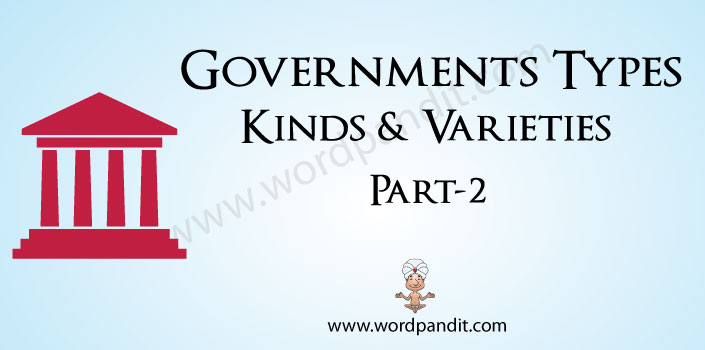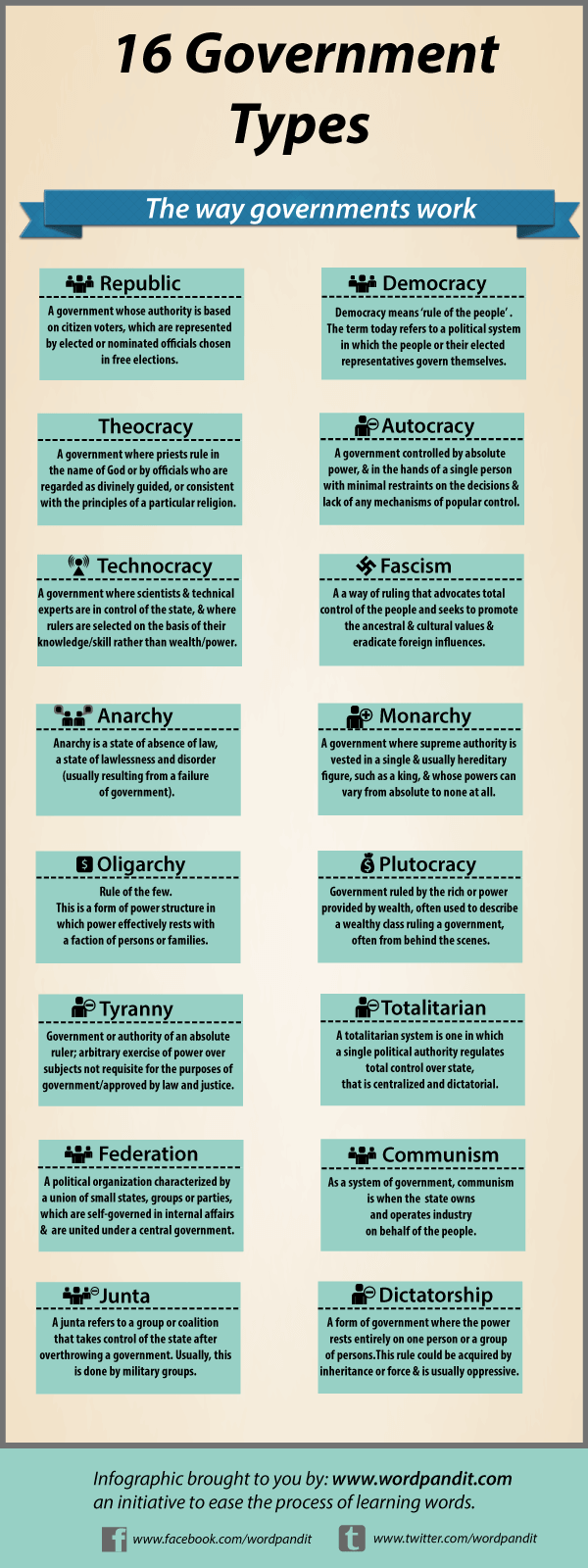Governments play a pivotal role in society, one which defines the fate of the citizens they govern. But the way governments operate is not same, in fact the variation is immense. Governments are like our fingers of our hands; just like each finger has its own length and shape, different governments have their different form and functioning. In this post, we study 10 such forms of governments and how they act. Along the way, we also look into the linguistic origins of these governments and how they are called what they are. Let’s dig into these words:
1. Cabal
Derived from Kaballah, a philosophy which is an integral part of Judaism; rather than being a form of government, a cabal is a group of people or a plot by a group of people to promote their interests in a community or state, usually sinister ones. The term today has an association with shadowy corners, black rooms or secretive government affairs.
2. Junta
Having its origin from Spanish word Junta, which has its roots in Latin jungere (to join). It refers to a group or coalition that takes control of the state after overthrowing a government. Usually, this is done by military groups and the rule established is tightly controlled.
 3. Dictatorship
3. Dictatorship
Originally, a reference to a temporary emergency government established by the Roman Senate, dictatorship today refers to a form of government or social situation where the power rests entirely on one person or a group of persons. This rule could be acquired by inheritance or force and is usually oppressive, with no regulation by constitution, laws or opposition.
4. Authoritarian
Beginning with the Latin word ‘author’, meaning teacher or master, it is more of a description than being an actual form of government. A rule characteristic of a ruler having absolute sovereignty and centralised/highly concentrated power maintained by political repression can be termed as authoritarian. The term can also be used to connote arbitrary law situation such as election rigging or decisions made behind closed doors by a select group of government members.
5. Regime
The modern usage of the term regime often gives it a negative connotation, but it essentially refers to a mode or system of a government, or simply a ruling government of the country. The freedoms and restrictions granted to the citizens of a country can vary from regime to regime.
6. Autocracy
Coming from Greek roots ‘auto’ meaning self and ‘kratos’ meaning power, the word autocracy refers to a government controlled by absolute power, concentrated in the hands of a single person with minimal restraints on the decisions and lack of any regularised mechanisms of popular control.
7. Fascism
Having taken a different form, fascism has evolved dramatically in various ways over the years. It is a way of ruling that advocates total control of the people and seeks to promote the ancestral and cultural values and eradicate foreign influences that are deemed to cause degeneration to the national and moral values of the people.
8. Plutocracy
The Greek word ‘ploutos’ means wealth, so plutocracy is a government ruled by the rich or power provided by wealth. It can also be used to describe a wealthy class ruling a government, often from behind the scenes.
9. Technocracy
As the name suggests, technocracy is a form of government where scientists and technical experts are in control of the state. Initially used to designate the application of scientific method to solving social problems, the term now is used for a rule where rulers are selected on the basis of their knowledge and skill rather than wealth or power.
10. Unitary
A unitary state is the one characterised by or constituting a form of government in which power is held by one central authority, and the administrative divisions can only exercise those powers that the central authority chooses to delegate. A great number of nations have this form of government.
The first post in this series can be found here:
1. Governments Types: Kinds & Varieties-1
Infographic for Government Types













Interesting